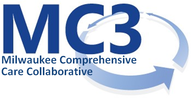DEFINITION
Person-centered care is defined as helping relationships that begin with the goals of the individual, as opposed to the goals of the system or as defined by the person providing the helping relationship.
- Individuals are always present at any meetings about their treatment.
- Their wishes about who else is involved in meetings regarding their care are honored and respected.
- Words like “compliance” (which implies passively going along with someone else's judgment, decision or goal) are not used.
- All options are fully discussed, information about alternatives is provided and personal choices are respected.
- The individual’s strengths and resiliencies are utilized to fulfill their personal goals.
- In instances where personal or public safety is at risk or when treatment is mandated, the person-centered principles still apply and should be followed as closely as possible.
Examples of Indicators:
- Individuals return to agency for further help.
- Early engagement in services.
- Policies and procedures utilize person-centered language.
- Person-centered language is reflected in the discharge reason.
- Program completion.
- Agency hours of operation accommodating individuals being served.
- Satisfaction with the agency's person-centered care, assessed through surveys, focus groups, in-depth interviews, and consumer advisory panels.
- Recovery plans show evidence of:
● Participant’s “important others” attend their staffing.
● Participants are asked what they need, what they find helpful, how they want to receive it, etc.
● Recovery plan goals utilize the language of the participant.
● Each problem has its own “stage of change” based intervention.
Assessments:
- Recovery Oriented System Indicators (ROSI): 42-item survey developed to assess the recovery orientation of community mental health systems for adults with serious and persistent psychiatric disorders and which covers eight domains: (1) Person-centered decision making and choice; (2) invalidated personhood; (3) self-care and wellness; (4) basic life resources; (5) meaningful activities and roles; (6) peer advocacy; (7) staff treatment knowledge; and (8) access.
- Person-Centered Care Planning Questionnaire (Consumer & Provider versions): 32-item assessment addressing domains including consumer inclusion in the treatment planning process, consideration of cultural factors during the treatment process, and support for education, employment, and housing, regardless of the consumer’s level of psychiatric stability.
